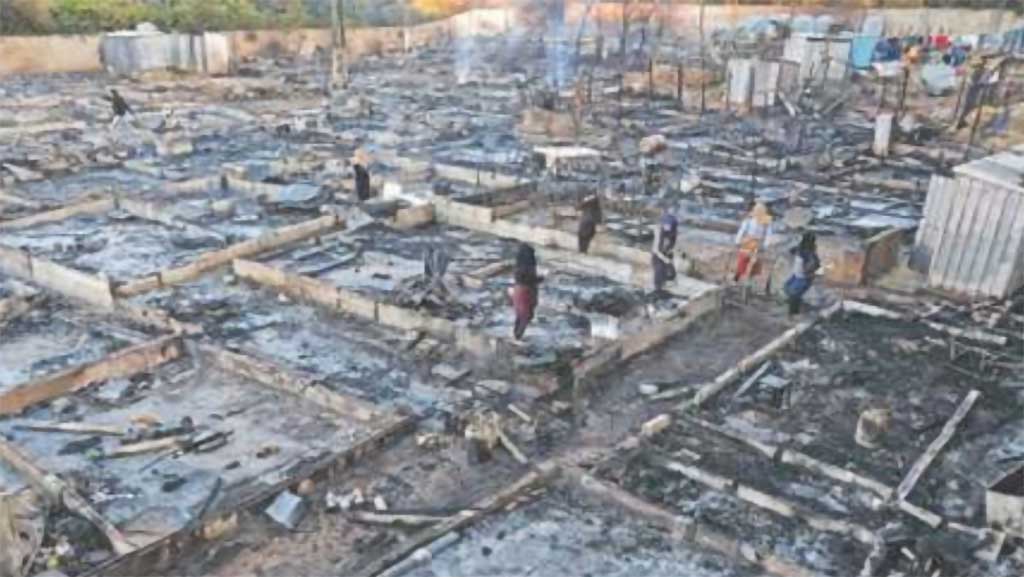Weekly News Report: December 21-27, 2020
21/12/2020
Syrian refugee camp burned in Miniyeh, Tripoli on December 26. Photo from AFP
Articles and views shared in the Weekly News Report do not represent ARM’s views. Information in these articles has not been fact-checked by ARM and may contain some errors. ARM is simply compiling all news relevant to migrant communities to inform our advocacy efforts and to facilitate the work of organizations who cater to migrant communities.
Evacuation Updates
More Migrant Workers Evacuated [source is ARM]
18 migrant women and men were evacuated to Ethiopia, Bangladesh and Sudan between December 21 and 24 with the support of ARM.
Press Conference in Sri Lanka on Migrant Workers Stranded in Lebanon [here]
A number of organizations that endorsed ARM’s urgent appeal to the Sri Lankan government organized a press conference on December 23 to address the situation of Sri Lankan women stranded in Lebanon and the urgency for immediate evacuation.
Other
Refugee Camp Burned in Miniyeh* [here]
A Syrian refugee camp in Miniyeh in the North was burned to the ground on Saturday December 26. The attack reportedly took place following a personal dispute between a Syrian worker and his Lebanese employer who allegedly refused to pay his due salary, and caused 370 people to lose their homes and belongings in addition to several injuries.
Eight Arrested for Burning Syrian Refugee Camp in the North [here]
Eight people were arrested on December 27 for burning the Syrian refugee camp in Miniyeh the day before. The army said in a statement that gunshots were fired by 2 Lebanese men before fully burning the camp to the ground.
*More on the attack
By Al Jazeera
By Sky News
By Alhurra
By Radio France Internationale
Report on Kafala by the Harvard International Review [here]
An article by the Harvard International Review reported the history of the Kafala system in Lebanon as a result of the need to resort to cheap after the civil war, facilitated by the government at the time. Power dynamics between employers, recruitment agencies and migrant workers are emphasized; detailing how the different forms of abuse and mistreatment are enabled under Kafala.
The article also elaborated the impact of the ongoing crises on the workers.
Related Posts
Have Any Questions?
To inquire about this statement and the context, email us or fill the form.
Join Our Newsletter
At the Anti-Racism Movement (ARM), we are constantly working on a multitude of different activities and initiatives. Most of our activities are only possible with the help of dedicated and passionate volunteers who work in collaboration with our core team.
The Anti-Racism Movement (ARM) was launched in 2010 as a grassroots collective by young Lebanese feminist activists in collaboration with migrant workers and migrant domestic workers.
Quick Links
Useful Links
This work is licensed under a Creative Commons Attribution 4.0 International License.
Developed by CONCAT
